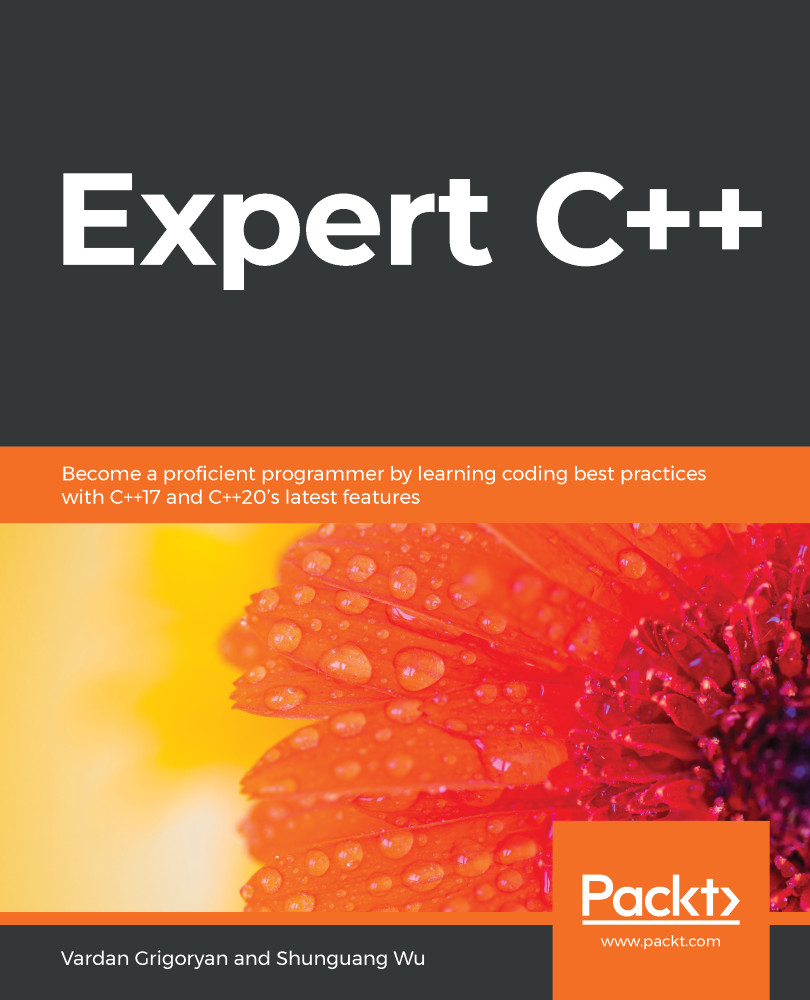There are many languages supporting automated garbage collection. For example, memory acquired for an object is tracked by the runtime environment. It will deallocate the memory space after the object with a reference to it goes out of the scope. Consider the following, for example:
// a code sample of the language (not-C++) supporting automated garbage collection
void foo(int age) {
Person p = new Person("John", 35);
if (age <= 0) { return; }
if (age > 18) {
p.setAge(18);
}
// do something useful with the "p"
}
// no need to deallocate memory manually
In the preceding code block, the p reference (usually, references in garbage-collected languages are similar to pointers in C++) refers to the memory location returned by the new operator. The automatic garbage collector manages the lifetime of the object created by the new operator...


